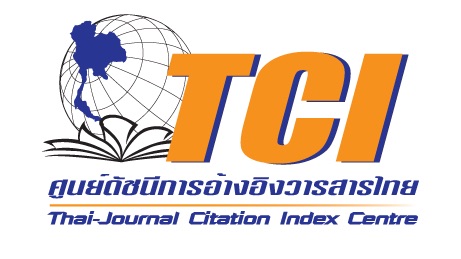A Study of Speech Acts through Chinese Sentence Structures in Simulated Situations by Chinese Major Students at the Faculty of Humanities and Social Sciences, Sisaket Rajabhat University
Keywords:
Pragmatics, Speech Acts, Chinese LanguageAbstract
This study aims to examine the use of Chinese language pragmatics through hypothetical scenarios involving Chinese language students at the Faculty of Humanities and Social Sciences, Si Sa Ket Rajabhat University. The study is based on data collected from questionnaires distributed to a sample group consisting of 20 students from the Chinese language program in the Faculty of Humanities and Social Sciences at Si Sa Ket Rajabhat University, selected through purposive sampling. The respondents were asked to complete the questionnaires in Chinese through 10 hypothetical scenarios.
The research findings reveal that in the role-play scenarios, there were 55 occurrences of direct speech acts, with the predominant evaluative technique being negative, comprising 49.10%. Additionally, there were 92 instances of indirect speech acts, with the most common strategy being positive wording, accounting for 27.18%. Furthermore, issues were found in using Chinese to express opinions appropriately according to the context. These issues stem from the influence of the mother tongue and the mismatch between the source culture and the target language, leading to communication errors or misinterpretations. These problems will serve as a basis for further studies to improve Chinese language teaching.
References
เก็จวิรัล ตั้งสิริวัสส์. (2560). การเรียนรู้ภาษาจีนเชิงวัจนปฏิบัติศาสตร์ของนักศึกษา สาขาการสอนภาษาจีนในฐานะภาษาต่างประเทศ คณะศึกษาศาสตร์ มหาวิทยาลัยศิลปากร. วารสาร Veridian E-Journal, Silpakorn University, 10(1), 582-591.
ชไมภัค เตชัสอนันต์.(2554).ภาษาศาสตร์เบื้องต้น. สำนักพิมพ์มหาวิทยาลัยสุโขทัยธรรมาธิราช.
รดารัตน์ ศรีพันธ์วรสกุล และณัฐพร พานโพธิ์ทอง. (2563). การศึกษาวัจนกรรมการแสดงความเห็นแย้งของผู้เรียนภาษาไทยชาวจีนตามแนววัจนปฏิบัติศาสตร์อันตรภาษา:กรณีศึกษานักศึกษาชาวจีนจากมณฑลยูนนานและกวางสี. วารสารวจนะ, 8(1), 1-26.
วิฑูรย์ เมตตาจิตร. (2558). วัจนกรรมการตำหนินักเรียนของครูในสามจังหวัดชายแดนภาคใต้ [การศึกษาตามหลักสูตรปริญญาศิลปศาสตรมหาบัณฑิต สาขาวิชา ภาษาไทย]. มหาวิทยาลัยสงขลานครินทร์.
ทรงธรรม อินทจักร. (2550). แนวคิดพื้นฐานด้านวัจนปฏิบัติศษสตร์. สำนักพิมพ์ มหาวิทยาลัยธรรมศาสตร์.
Searle, J. R. (1969). Speech acts: An essay in the philosophy of language. Cambridge university press.
Downloads
Published
How to Cite
Issue
Section
License
Copyright (c) 2025 Journal of Human and Society, Sisaket Rajabhat University

This work is licensed under a Creative Commons Attribution-NonCommercial-NoDerivatives 4.0 International License.







